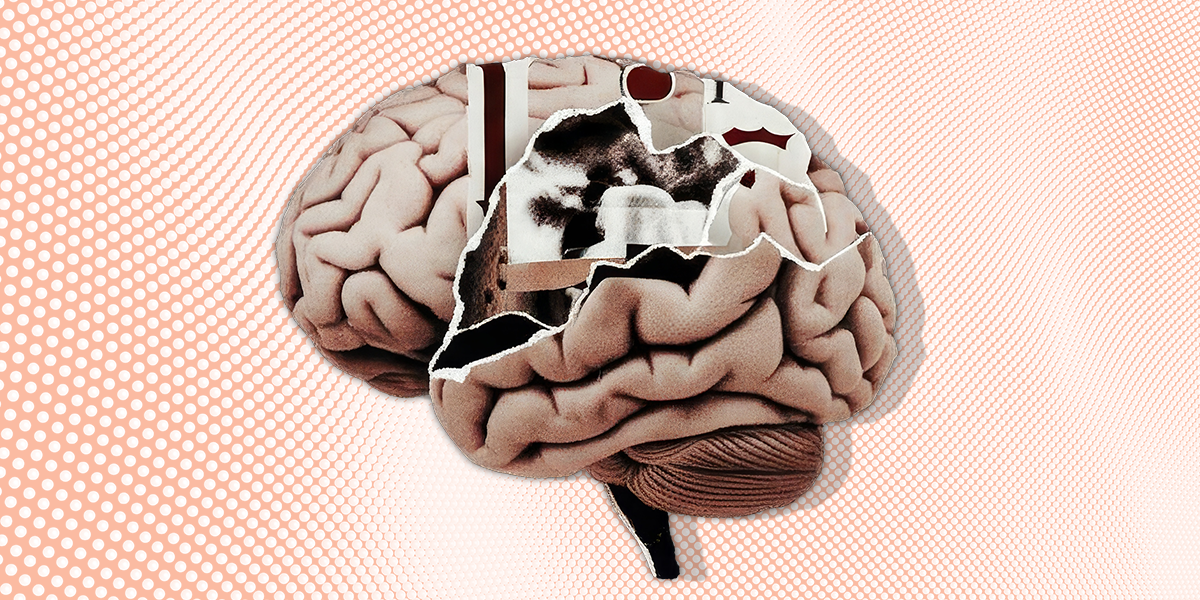
No one is coming to save you.
This mantra helped me become self-reliant and:
- Escape a 9 to 5 job I hated
- Learn profitable skills
- Make a full-time living doing what I love
When you realize no one is coming to save you, it puts you in a position of power because you know it’s on you to get the job done.
So what does it mean to be self-reliant, anyway?
The Oxford English Dictionary defines self-reliant as “reliant on one’s own powers and resources rather than those of others.”
Independence, solving whatever inevitable challenges life throws at you—that kind of resourcefulness is admirable. And while being a self-reliant person is something most people want to practice in their daily lives (at least in theory), it’s not always easy to do.
Take me, for example. I spent a year writing my third book. Everything was ready to go, I created all the files for the book to send to Amazon, and it passed all the quality checks. I thought I was set.
I went to bed and dreamed about all the sales notifications I’d see the next day, but instead I woke up to my worst nightmare.
My inbox was flooded:
“I clicked the link to your book and I saw an error page.”
“It says your book isn’t available, Ayo.”
“I was going to buy the book, but now this just looks unprofessional.”
There was a quality error with the book because of something called “metadata” in the files. I had hired a book formatting company to do it for me. I reached out to them so they could fix the book first thing in the morning.
The company was on the West Coast, Pacific Time, so they weren’t even awake. I was panicking.
I had no idea how to fix the files myself. I could’ve just thrown up my hands, quit, and let my book launch become a complete failure.
Instead, I tapped into self-reliance to solve the problem.
I did a bunch of Google searches, looked at forums, and hunted down an answer for how to fix the file. I figured out how to fix it myself, edited the file, reuploaded it to Amazon, and the book became a smashing success.
When you’re self-reliant, you stay calm under pressure and trust yourself to figure things out—even if you don’t know the exact answer right away. Self-reliance shows you not only how to take responsibility for your mistakes but also how to fix them and grow in the process.
Real talk: It’s up to you
Before I share the ways to embrace a self-reliant mindset, let’s look at the institutions and people you shouldn’t expect to bail you out of your situation.
The government isn’t coming to save you
It’s important to do your civic duty and vote. Policy decisions do matter and will affect your life.
But there’s no legislation that can give you the lifestyle you want. There’s no politician that can fix your situation for you, no matter how many times they say they can. It’s impossible for the government to come up with a remedy that solves everyone’s problems at the same time.
Think of your life so far.
How many different administrations have you lived through?
How much has your life changed between administrations aside from the way they make you feel about your situation?
It’s mostly smoke, mirrors, and window dressing.
Your life will stay the same regardless of who’s in charge unless you do something to change it.
If you spend too much time thinking about how the government will solve your problems, you’ll fall into pitfalls like:
- Watching a ton of political news: News is designed to attract eyeballs more than it’s designed to inform you. If you watch a bunch of news it’ll distract you, put you in a bad mood, and divert attention from what matters.
- Looking for utopia: Politicians love to paint this picture of life that is all roses and sunshine so long as you vote for them. But utopia has never existed, nor will it ever exist.
- Looking for macro solutions to micro problems: Often, you need to change your situation on a local level. It’s more about making decisions that impact you directly than waiting for the entire world to change.
We need governments to protect our citizens, make sure roads are paved, and pass legislation.
You are in charge of reaching your goals, finding your purpose, and living your life on your terms.
Your parents, friends, and family aren’t going to save you
I don’t buy into the notion that your parents, friends, and family won’t support your goals. Often, they will.
But nobody will care about your goals more than you.
And they won’t do the work for you.
Also, even though your family and friends love you, they don’t always see the world the same way you do. Because they care about you, they might steer you toward the safe, known, and comfortable route.
They may not discourage you from living a life of purpose, but they might unknowingly project their fears, doubts, and limiting beliefs on you through the guise of concern.
My parents were skeptical of my goal to become a writer. They wanted me to go to school, get good grades, and find a nice job. As much as I love them, I didn’t want to live the same life as them, so I pursued a different route.
There were times when the people around me didn’t quite get what I was trying to accomplish. They’d tell me to “be realistic” and “not get my hopes up.”
Had I listened to them, I wouldn’t be where I am today. Don’t ditch your friends or ignore the advice you get from your family, but remember to be your own person and make decisions based on what you want.
Your employer isn’t going to save you
Job security is a myth.
You are always at risk of losing your job. Economic conditions change. Sometimes black swan events come out of nowhere and wipe away jobs in the blink of an eye. Look at situations like Covid or the 2008 housing crisis where tons of people who had stable jobs saw them vanish.
Nassim Taleb talks about this in his book, “Antifragile”:
Consider a turkey that is fed every day, every single feeding will firm up the bird’s belief that it is the general rule of life to be fed every day by friendly members of the human race ‘looking out for its best interests,’ as a politician would say. On the afternoon of the Wednesday before Thanksgiving, something unexpected will happen to the turkey. It will incur a revision of belief.
In short, everything is fine until it isn’t.
Also, no matter how much you like your job or how well you’re treated, you’re not in control of your time, you’re not in control of how much money you make, and your position is never guaranteed.
When you make your own money, your income might be volatile, but there are things you can do to increase it. You take more risks but you also get more rewards if you succeed.
Many people make decisions with the belief that their job can bail them out like:
- Living paycheck to paycheck without saving money
- Buying homes they can’t afford because they assume money will keep rolling in
- Living above their means
Remember, a business owner will always make decisions that benefit the business. If that means letting you go, it means letting you go.
The point of these examples isn’t to stop voting, quit your job tomorrow, or abandon the people you love, but rather to show you that your own resourcefulness is your best shot at success.
Now that you understand no one is coming to save you, here’s what you can do about it.
3 ways to change your mindset and save yourself
Limiting beliefs hold us back all the time—those lies we tell ourselves about ourselves. When we change how we think, we can practice being self-reliant.
1. Always accept responsibility (even when it’s not your fault)
There are forces outside of your control.
Circumstances do affect your decisions.
But it’s wise to always take ownership and agency of your situation, especially the way you react to what happens to you.
It does no good to point the finger or blame others for your problems (even if they’re at fault) because that won’t help you solve your problem.
Two people can go through the same situation, have different reactions to it, and make different decisions based on those reactions—so there is no such thing as an objective response.
Even if you’re not religious, this famous prayer demonstrates the perfect attitude to handle the ups and downs of life:
Since no one is coming to save you, where can you find the courage to change the things you can? That’s where your power comes from and the answer to that question will shape your future.
2. Use this mantra to cope and move forward
“This is where I’m at and I have to deal with it.”
I used this mantra when I was a broke college dropout making $10/hr. I didn’t want to be in that position, but I was, so I decided to make the best move given my circumstances.
Sometimes you find yourself in a bad spot.
You don’t like your job. You don’t like your relationship. You wish you had more money.
Which reminds me of another saying from an old mentor of mine:
You can wish in one hand and s*** in another, see which one fills up first.
You can try to manifest your goals and wait for some miracle to happen, but you’ll be waiting a long time—probably forever.
Aside from literally winning the lottery, there are few circumstances where some amazing windfall just rains down from the sky.
Wherever you are in life, ask yourself what moves you can make from whatever position you’re in, even if—especially if—you don’t like that position.
3. Do what you can with what you have
You can trick yourself into thinking you need more resources when you actually need to be more resourceful.
If you don’t have enough money, wrack your brain to find ways to make more. If you don’t have a solid network or connections, go build them. Instead of saying, “I can’t,” ask yourself, “How can I?”
Let’s say you need to come up with $10,000 in a week, or someone will murder your entire family. You’d either get the money or die trying.
All of a sudden different options would present themselves. You’d work night and day. You’d pass up sleep. You wouldn’t just sit there paralyzed.
This over-the-top example shows how you would spring into action when your back is against the wall. But the reality is (thankfully) most circumstances aren’t life-and-death situations. No one is forcing you to do what needs to be done.
But your life would change if you behaved with that kind of urgency.
Be self-reliant and be your own hero
You can’t succeed on your own.
Of course you’ll need help along the way. Building connections and leaning on other people is a part of work and life. But when it comes to the heavy lifting, you’re in charge.
And you’re a lot stronger than you think.
When you replace learned helplessness with personal responsibility, you’ll realize you were the problem all along. But you’ll also realize you’re the solution.
You don’t need a handout. You don’t need to be carried to the finish line. There’s only one thing you must do to get everything you want: You need to trust yourself.
You have skills and talents. Trusting yourself unlocks them.
When you start to think about how you can exhaust every resource, strategy, thought mindset, and avenue available to you, opportunities will start to pop up out of nowhere—because now you’re in a position to spot and seize them.
When you take back your power and learn to be self-reliant, getting what you want is a literal matter of time.








